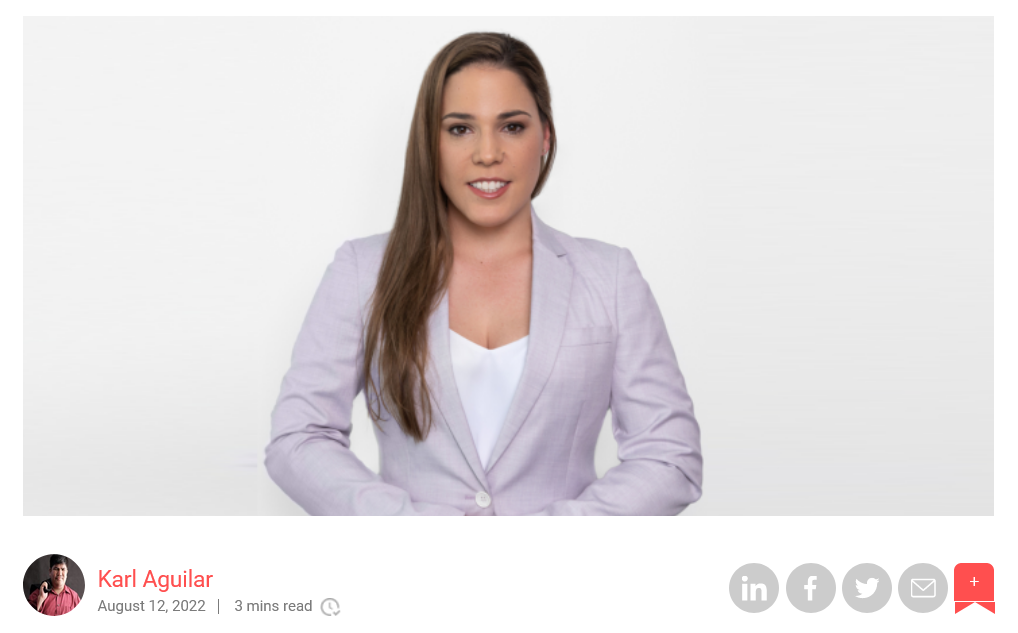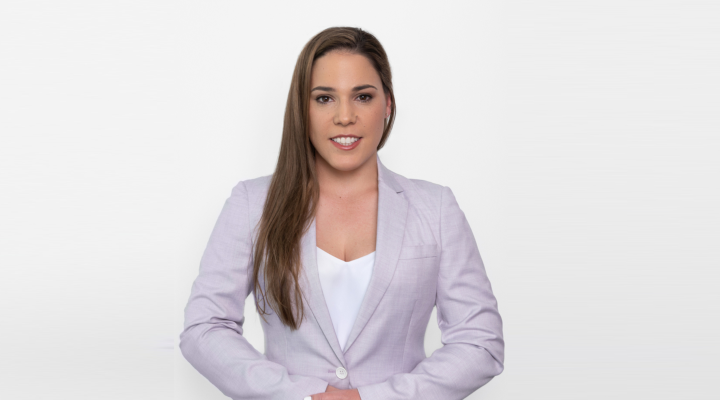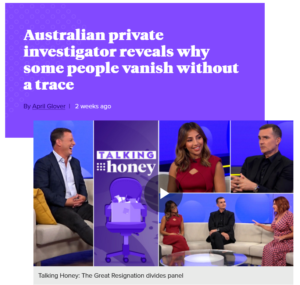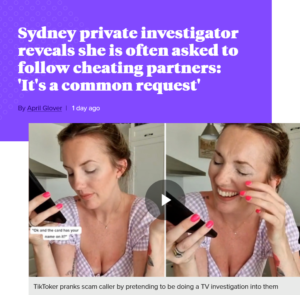This week we talk to Amy Elliott, founder of National Inquiry Agency, a boutique private investigation firm that specialises in skip tracing, missing persons, background checks, corporate investigations and process serving. Shaped by the struggles she faced as a child, Amy decided to dedicate herself to helping others seek the truth as well as attain justice, working in the field of private investigation before ultimately establishing her own firm where she is able to do more and help control the outcome for the clients she serves.
ISB: What was the driving force behind your decision to start your own private investigation firm?
AE: The driving force to start my own private investigation firm were two reasons, passion and freedom. Starting up National Inquiry Agency gave me the opportunity to combine what I loved to do utilising a business framework. I had the freedom to design intellectual property and investigative techniques without creative constraint. I also wanted to carve out more space for women like myself, in what is typically a male-dominated industry, to show that women should consider private investigating as a rewarding career option.
ISB: What lessons were you able to bring over from your experience working in that same industry for someone else?
AE: Developing trust with clients is a must. In handling a client’s case I need to get a deep understanding of their purpose, needs and end goal. Having a non-judgmental ear and being transparent about the solutions I can offer are vital to building trust. Also, once an investigation proceeds, it’s important to always ‘measure twice and cut once’.
And, of course, to be prepared for the unexpected. This is the part that makes our line of working exciting; when there are certain factors or events that occur while on the field that my operatives or I cannot control, being able to adapt is a necessary trait to being an investigator.
ISB: How do you manage to combine the best of modern and traditional techniques in your investigative practice?
AE: It’s important to recognise that the world of private investigations has evolved over the past few decades. With the rise of the use of the internet, social media platforms, and technological advances; it has never been easier to have powerful databases and software at our disposal. However, I make sure that I am not overly reliant on cyber investigative techniques to obtain results. I often use ‘old-school’ techniques that were passed down by the pioneers in our industry that are still valid and combine this know-how with technological advances when I undertake investigative work.
ISB: What misconceptions about being a private investigator do you wish to debunk through your work?
AE: TV shows usually portray us in cars on a stakeout with large binoculars. We definitely do this type of surveillance work, however, there are also other areas of investigation: background checks, discreet enquiries and location of missing persons. There is a lot of research that goes on behind the scenes when cases are taken onboard and prior to an Investigator going out on field. A level of research and scouting is required prior to an on-field assignment, or the investigator risks being ‘blinded’.
Investigators, depending on their area of expertise also hold technical certifications in forensics, coding, surveillance techniques, OSINT (open-source intelligence) and other areas, as well as tertiary education in investigations, law and intelligence. While the traditional stakeout gets results, there is an extensive toolbox private investigators lean on. We use a variety of databases, technologies, and strategies to get the results we need.
ISB: How do you see the National Inquiry Agency evolving in the next couple of years?
AE: My goal for National Inquiry Agency is that we remain a high-quality boutique agency and to be the preferred provider in Sydney. I also have plans for onboarding another investigator shortly to train, upskill and share my knowledge with.
ISB: What advice can you give to others who may have experienced challenges in childhood and are trying to find their purpose?
AE: My advice is to have a growth mindset. Seek out those that inspire you, dig deep, and look to better yourself. Reflect closely at those challenges, what they may have taught you about yourself, and turn that pain into your purpose.
Article Source: INSIDESMALLBUSINESS.COM.AU






